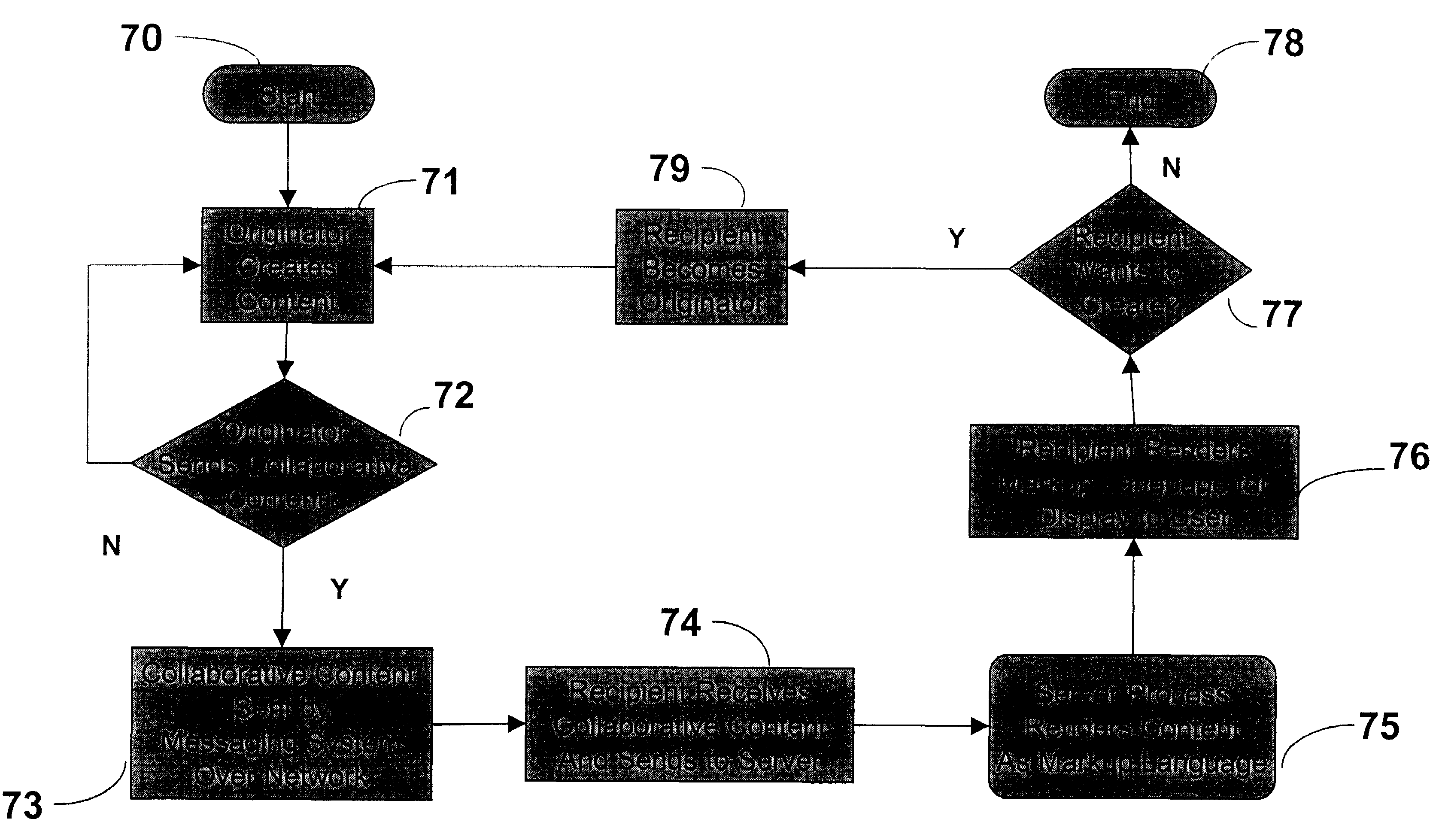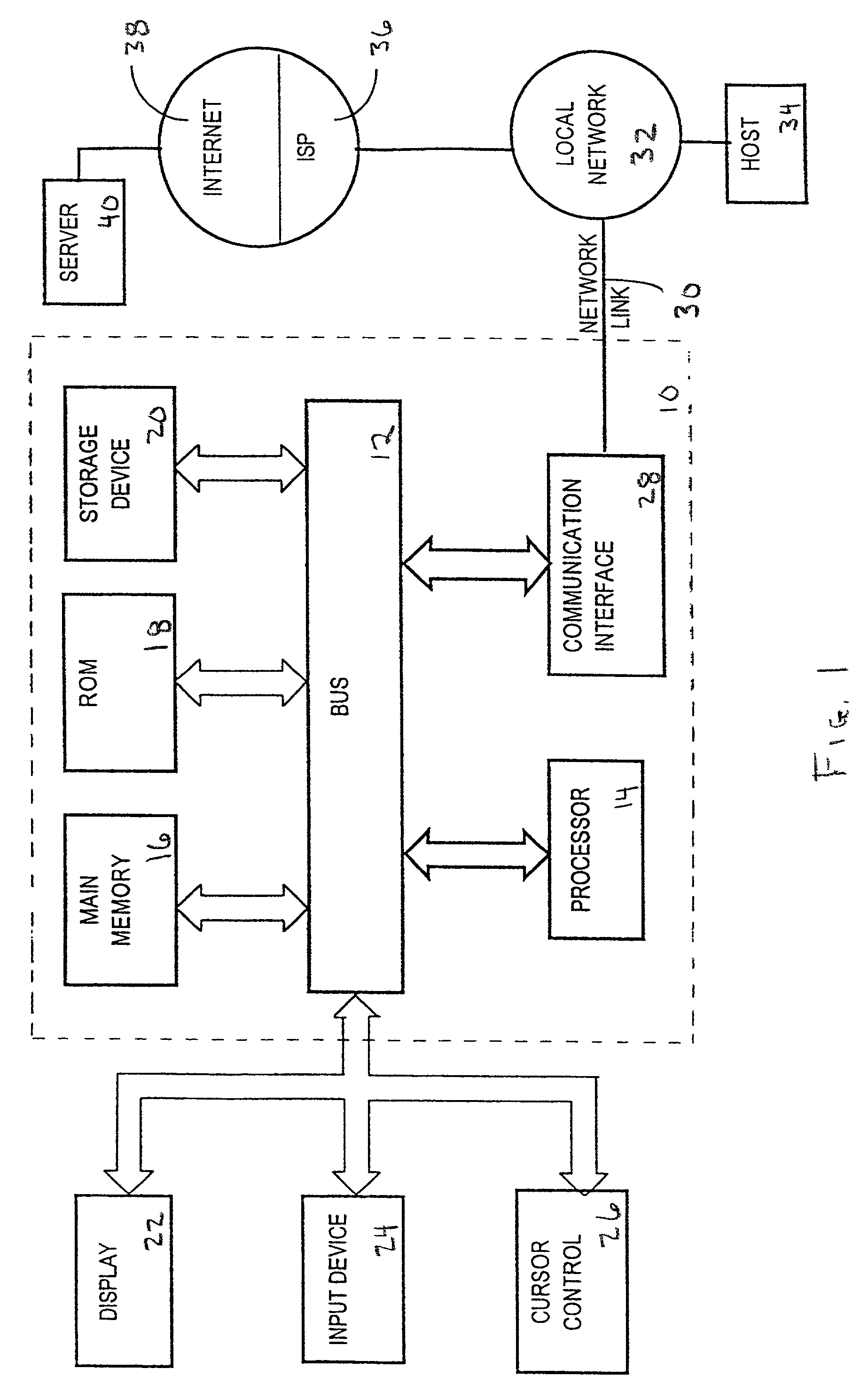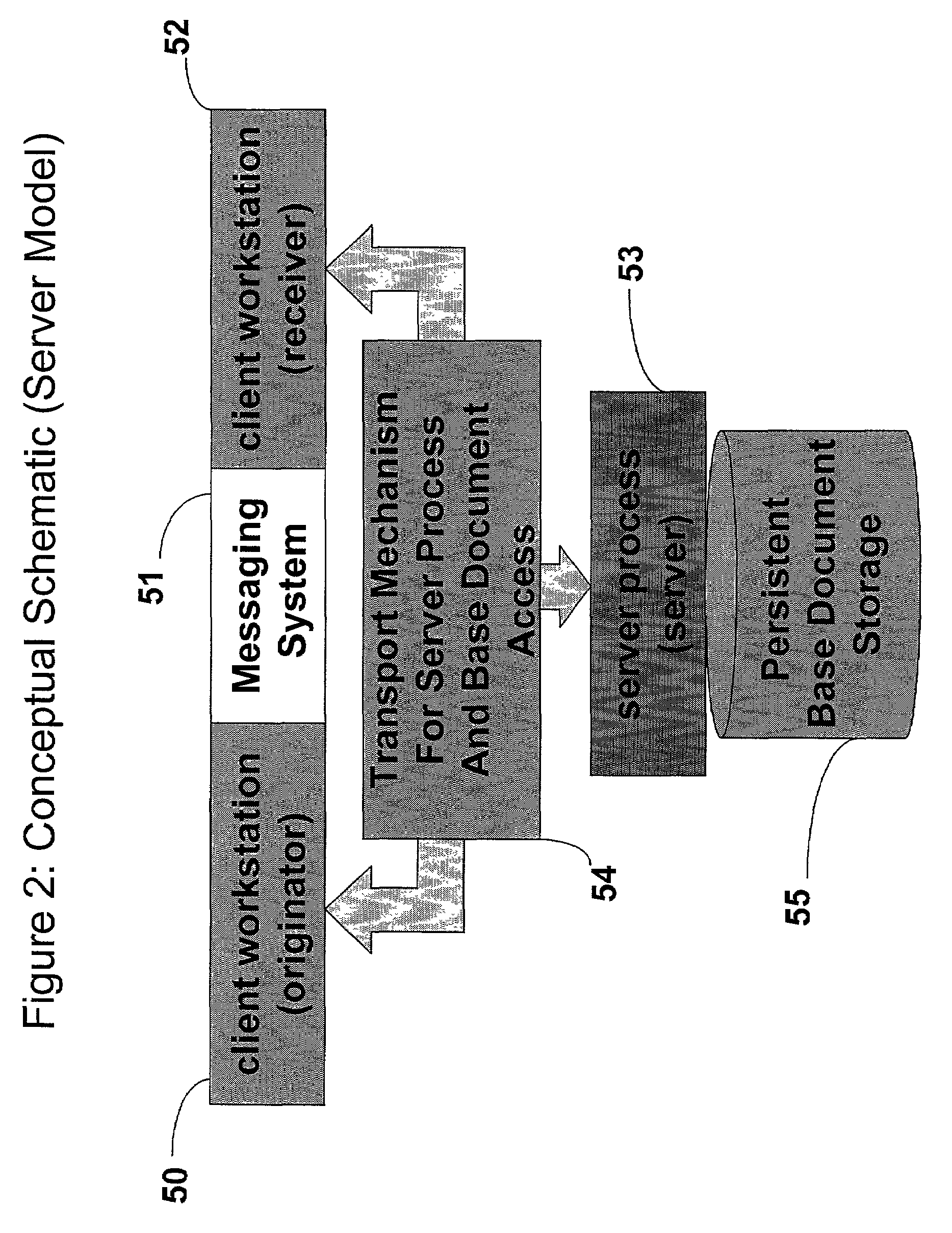System and process for network collaboration through embedded annotation and rendering instructions
a technology of network collaboration and embedded annotation, applied in the field of communication, can solve the problems of wasting millions of dollars in scrap and rework, affecting the quality of the new specification,
- Summary
- Abstract
- Description
- Claims
- Application Information
AI Technical Summary
Benefits of technology
Problems solved by technology
Method used
Image
Examples
Embodiment Construction
[0042]A method and apparatus for network collaboration through embedded annotation and rendering instructions are described. In the following description, for purposes of explanation, numerous specific details are set forth in order to provide a thorough understanding of the present invention. It will be apparent; however, that the present invention may be practiced without these specific details. In other instances, well-known structures and devices are shown in block diagram form in order to avoid unnecessary detail and obscuring the present invention.
Top Level Description
[0043]The present invention is a system and process for network collaboration using embedded annotations and rendering instructions to enable collaborators to generate, share or transmit, and render collaborative content over the internet. Collaborators are able to view, generate, and render the collaborative content without installing any application software on their computer systems other than a web browser. R...
PUM
 Login to View More
Login to View More Abstract
Description
Claims
Application Information
 Login to View More
Login to View More - R&D
- Intellectual Property
- Life Sciences
- Materials
- Tech Scout
- Unparalleled Data Quality
- Higher Quality Content
- 60% Fewer Hallucinations
Browse by: Latest US Patents, China's latest patents, Technical Efficacy Thesaurus, Application Domain, Technology Topic, Popular Technical Reports.
© 2025 PatSnap. All rights reserved.Legal|Privacy policy|Modern Slavery Act Transparency Statement|Sitemap|About US| Contact US: help@patsnap.com



